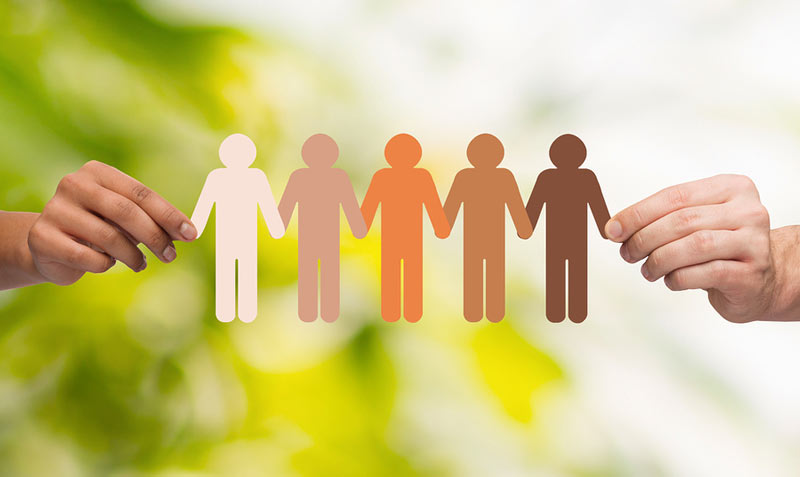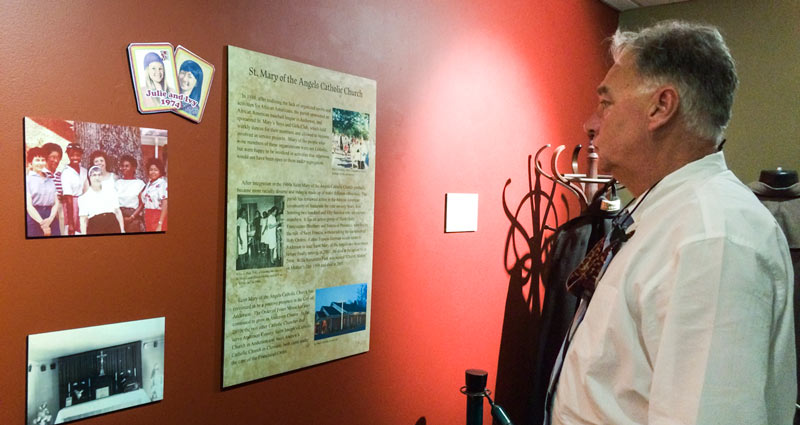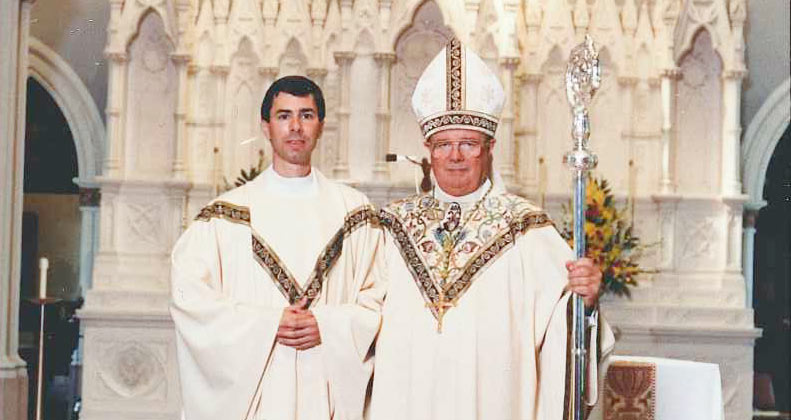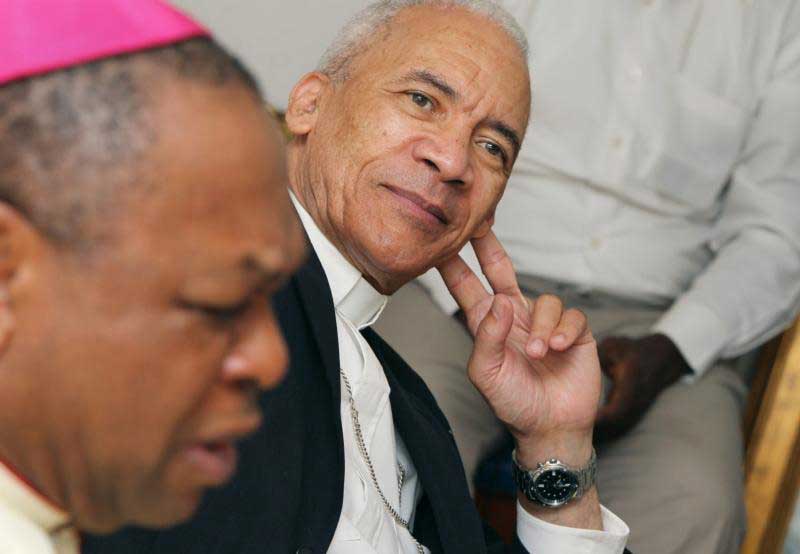
CLEMSON—Father Clarence Williams talks about overcoming racism in a very different way.
The priest sees the evil of racism as something that people and society as a whole must recover from before they can work together. That is why he founded the Institute for Recovery from Racism and offers seminars and discussions on what he calls “Racial Sobriety.”

On April 23, he visited St. Andrew Church in Clemson to introduce the concept to 55 people who attended a forum sponsored by the Adult Faith Formation and Social Justice and Outreach committees at the parish. Participants included parish members, students from Clemson University, community leaders and members of other churches. The crowd included people from nations in Africa and Latin America.
Father Williams, a priest of the Missionaries of the Precious Blood, has taken his message on racism around the country and overseas and has worked to address issues of race and diversity for more than 35 years. He is currently pastor of St. James the Less Catholic Church in Columbus, Ohio.
“The idea behind racial sobriety is for people to get freedom from the kind of thinking in society that produces racism, in a similar way that people get freedom from alcoholism and other addictions when they achieve sobriety,” Father Williams said. “We get racial dysfunction in society when we give power to differences and when we don’t see each person as our brother and sister.”
In his workshops, Father Williams encourages participants to make a commitment each day to regard the people they encounter as God’s children first, rather than immediately noticing race, class or gender.
“Anything that makes people treat each other as less than fellow human beings is the problem,” he said.
He uses the word SOBER as an acronym to outline the three types of “sobriety” that people should practice to improve relationships. In personal relationships, the letters stand for “Seeing Others as Being Entitled to Respect.” The acronym for social sobriety is “Seeing Others as Being Equally Regarded” and in global relations, “Seeing Others as Being Extended Relations.”
During the session in Clemson, Father Williams asked participants to form small groups and discuss their encounters with racism.
He said learning to talk freely about racial attitudes and experiences is difficult because society has developed barriers against discussing the issues face to face.
Because race is often considered a “no-no” to talk about in public, Father Williams said people carry that attitude into their own personal lives. They won’t talk about race with others, or even take time to think about the issue.
Only through discussion, he said, can people learn more about their own attitudes and perspectives and figure out what changes they need to make.
“We need to break the cage of anxiety of race by talking about it,” Father Williams said. “There is a cultural fear against this topic and we internalize it, rather than finding our own voice to talk to others and with ourselves.”



